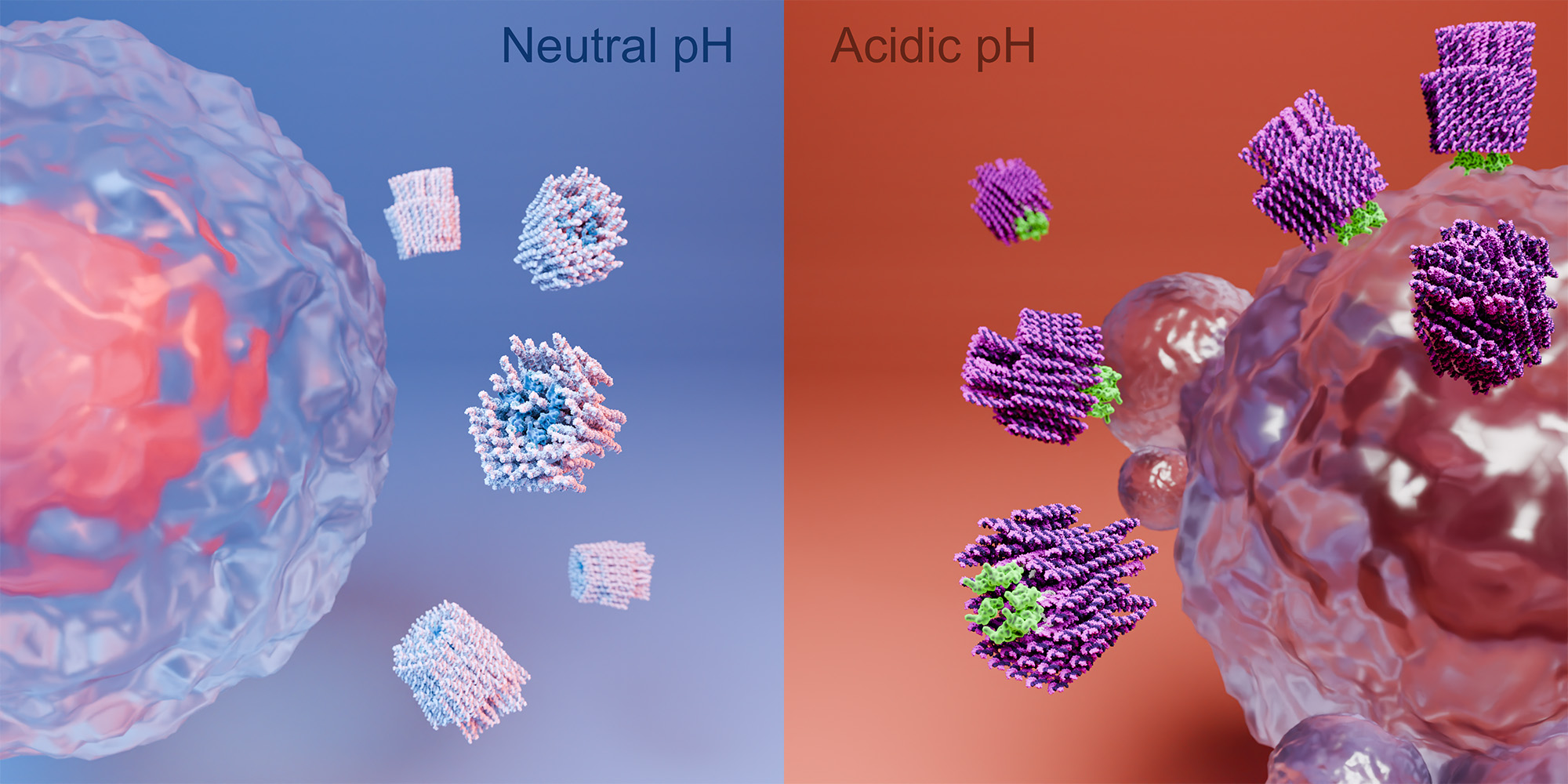News
Tumor-Fighting Nanobots Could Revolutionize Cancer Treatment
The tiny DNA-based robots target and destroy diseased cells while sparing healthy tissue.

In a significant leap forward in cancer therapy, scientists at Sweden’s Karolinska Institutet have engineered nanobots capable of selectively targeting and eradicating tumor cells. This innovation has the potential to become a powerful new tool in combating a deadly disease which continues to claim millions of lives worldwide.
The nanobots are crafted using a process known as DNA origami, which involves folding DNA molecules into precise shapes at an incredibly small scale. These microscopic robots use a hexagonal arrangement of peptides hidden within their structure. The lethal mechanism remains inactive until it encounters the acidic environment typically surrounding solid tumors, ensuring that healthy cells remain unharmed.

Professor Björn Högberg, from the Department of Medical Biochemistry and Biophysics at Karolinska Institutet and the study’s lead investigator, elaborates on the breakthrough: “The hexagonal nanopattern of peptides acts as a potent weapon. If administered directly as a drug, it could cause widespread damage by killing cells indiscriminately. To prevent this, we have ingeniously concealed the weapon inside a DNA-based nanostructure”.
The remarkable abilities of the nanobots lie in their ability to detect the difference in pH levels between healthy and cancerous tissues. The lethal peptides remain securely hidden in normal tissues, where the pH level is around 7.4. However, in the more acidic environment of cancerous tissues, where the pH drops to 6.5, the nanobots’ hidden weapon is triggered, leading to the destruction of cancer cells.
Also Read: Insilico Develops The World’s First Fully AI-Generated Drug
During preclinical experiments, these nanobots were injected into mice with breast cancer. The results were impressive, showing a 70% reduction in tumor growth in the mice treated with active nanobots compared to those given an inactive version. These promising findings pave the way for additional studies to evaluate the nanobots’ effectiveness in more advanced cancer models and identify potential side effects.
“We now need to test this approach in more complex cancer models that better simulate human disease,” explained Yang Wang, the study’s first author and a researcher at Karolinska Institutet’s Department of Medical Biochemistry and Biophysics. “It’s also crucial to determine the method’s side effects before we can move on to human trials”.
Although still in the early stages, the technology marks a significant advance in the field of personalized cancer therapy. The researchers are hopeful about the future, with plans to further refine the nanobots by attaching specific proteins or peptides that could bind more accurately to particular cancer cells, thereby enhancing their precision and effectiveness.
News
Alienware Just Announced Six New Gaming Monitors
The new models include three QD-OLED and three budget-friendly QHD options, expanding the company’s lineup for all gamers.

Alienware has just updated its gaming monitor lineup with six new additions, including the highly anticipated Alienware 27 4K QD-OLED Monitor. The latest wave of releases is set to reach more gamers than ever, offering high-end QD-OLED displays alongside more budget-friendly options.
The latest displays clearly show that the company is doubling down on QD-OLED with three new models sporting the technology. A redesigned Alienware 34 Ultra-Wide QD-OLED Monitor is also making a return, further refining what is already a fan-favorite display.
A Unified Design: The AW30 Aesthetic
All six monitors feature Alienware’s new AW30 design language, first introduced at CES. The AW30 aesthetic brings a futuristic, minimalist look that unites the entire lineup under a cohesive visual identity.
Pushing QD-OLED Even Further
The refreshed Alienware 34 Ultra-Wide QD-OLED Monitor (AW3425DW) builds on its predecessor’s success with a 240Hz refresh rate (up from 175Hz) and HDMI 2.1 FRL support. It also gains G-SYNC Compatible certification alongside AMD FreeSync Premium Pro and VESA AdaptiveSync, ensuring ultra-smooth performance. With a WQHD (3440×1440) resolution and an 1800R curve, this display enhances immersion for both gaming and cinematic experiences.
For those who crave speed, the Alienware 27 280Hz QD-OLED Monitor (AW2725D) pairs a high refresh rate with QHD resolution, balancing sharp visuals with ultra-smooth gameplay. Meanwhile, the Alienware 27 4K QD-OLED Monitor (AW2725Q) delivers stunning clarity with an industry-leading pixel density of 166 PPI, making it the sharpest OLED or QD-OLED monitor available.
Also Read: Infinite Reality Acquires Napster In $207 Million Deal
Worried about OLED burn-in? Alienware’s entire QD-OLED lineup comes with a three-year limited warranty covering burn-in concerns, offering peace of mind for gamers investing in these high-end displays.
Bringing QHD To A Wider Audience
Alongside QD-OLED, Alienware is also releasing three new QHD gaming monitors aimed at more price-conscious gamers. The Alienware 34 Gaming Monitor (AW3425DWM), Alienware 32 Gaming Monitor (AW3225DM), and Alienware 27 Gaming Monitor (AW2725DM) provide a range of sizes and formats to suit different preferences:
- The Alienware 34 Gaming Monitor (AW3425DWM): An ultrawide (WQHD) option for a panoramic, immersive experience.
- The Alienware 32 Gaming Monitor (AW3225DM): A standard 16:9 panel for a traditional but expansive desktop setup.
- The Alienware 27 Gaming Monitor (AW2725DM): A 27” display offering the same performance in a more compact form factor.
All three gaming monitors feature a fast 180 Hz refresh rate, a 1ms gray-to-gray response time, and support for NVIDIA G-SYNC, AMD FreeSync, and VESA AdaptiveSync to eliminate screen tearing. Additionally, with 95% DCI-P3 color coverage and VESA DisplayHDR400 certification, these displays deliver vibrant colors and high dynamic range for lifelike visuals.



























